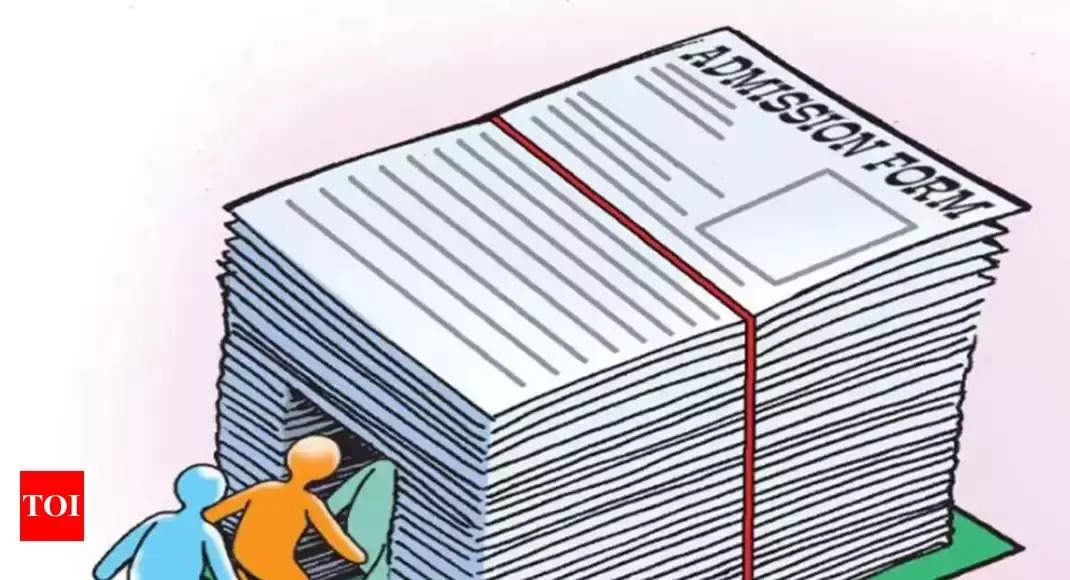One of the key components of the National Education Policy 2020 is the restructuring of the 10+2 system with that of the 5+3+3+4 system, bringing in early childhood education into formal education.
The union ministry of education has asked the States and UTs to align their age to admission in schools with that of the National Education Policy 2020 and provide admission to class I at the age of six years and above.
As per the 5+3+3+4, the first stage (foundational) is for students between the age of three to eight (classes pre-school/ anganwadi upto II). The second stage (preparatory) is for age group eight to 11, which is for classes III to V. Next level (middle school) for ages 11 to 14, which covers classes VI to VIII and last phase (secondary school) is for ages 14 to 18 for classes IX to XII.
At present, for States like Karnataka and Goa it is five years and 10 months. However, the respective State governments have mandated six years to be the minimum age for admission to class I from the academic year 2025.
According to a senior MoE official, the 5+3+3+4 envisaged in the policy promotes seamless learning and development of children from pre-school to class 2. “This can only be done by ensuring accessibility to three years of quality preschool education for all children studying in Anganwadis or government, government-aided, private and NGO-run preschool centres.”
In October last year the Government launched the national curriculum framework for education of children aged 3-8 years, the first of the four NCFs. And on Monday, union education minister, Dharmendra Pradhan, launched the ‘Jaadui Pitara’ – learning material for foundational years containing contains playbooks, activity books, worksheets, toys, handbooks for teachers and trainers, flashcards, story cards, posters, puzzles, puppets, and children magazines.
“It is an innovative, child-centric learning pedagogy that will prepare young children for the life-long journey of learning and fulfill one of the most vital recommendations of new National Education Policy (NEP) 2020,” said Pradhan at the launch.
In the Supreme Court in April 2022 during the hearing of an appeal by a group of parents challenging the minimum age of six years for admission to class I in Kendriya Vidyalayas, a bench of justices Sanjay Kishan Kaul and MM Sundresh remarked that “There is a kind of rush to send children to schools. Parents want to start as soon as their children are two years old. This may not be conducive to their psychological health.”.
The MoE officials said the most important factor at the foundational stage is the availability of qualified teachers who are especially trained in the age and developmentally-appropriate curriculum and pedagogy. The ministry has advised states to initiate the process of designing and running a two-year diploma in preschool education (DPSE) course in their respective jurisdiction.
“The course is expected to be designed by the State Council of Educational Research and Training (SCERT) and run or implemented through District Institute of Education and Training (DIETs) under supervision and hold of SCERTs,” the official said.
!(function(f, b, e, v, n, t, s) {
window.TimesApps = window.TimesApps || {};
const { TimesApps } = window;
TimesApps.loadFBEvents = function() {
(function(f, b, e, v, n, t, s) {
if (f.fbq) return;
n = f.fbq = function() {
n.callMethod ? n.callMethod(…arguments) : n.queue.push(arguments);
};
if (!f._fbq) f._fbq = n;
n.push = n;
n.loaded = !0;
n.version = ‘2.0’;
n.queue = [];
t = b.createElement(e);
t.async = !0;
t.src = v;
s = b.getElementsByTagName(e)[0];
s.parentNode.insertBefore(t, s);
})(f, b, e, v, n, t, s);
fbq(‘init’, ‘593671331875494’);
fbq(‘track’, ‘PageView’);
};
})(
window,
document,
‘script’,
‘https://connect.facebook.net/en_US/fbevents.js’,
);if(typeof window !== ‘undefined’) {
window.TimesApps = window.TimesApps || {};
const { TimesApps } = window;
TimesApps.loadScriptsOnceAdsReady = () => {
var scripts = [
‘https://static.clmbtech.com/ad/commons/js/2658/toi/colombia_v2.js’ ,
‘https://www.googletagmanager.com/gtag/js?id=AW-877820074’,
‘https://www.googletagmanager.com/gtag/js?id=AW-658129294’,
‘https://timesofindia.indiatimes.com/grxpushnotification_js/minify-1,version-2.cms’,
‘https://connect.facebook.net/en_US/sdk.js#version=v10.0&xfbml=true’,
‘https://timesofindia.indiatimes.com/locateservice_js/minify-1,version-14.cms’
];
scripts.forEach(function(url) {
let script = document.createElement(‘script’);
script.type=”text/javascript”;
if(!false && !false && !false && url.indexOf(‘colombia_v2’)!== -1){
script.src = url;
} else if (!false && !false && !false && url.indexOf(‘sdkloader’)!== -1) {
script.src = url;
} else if (!false && !false && (url.indexOf(‘tvid.in/sdk’) !== -1 || url.indexOf(‘connect.facebook.net’) !== -1 || url.indexOf(‘locateservice_js’) !== -1 )) {
script.src = url;
} else if (url.indexOf(‘colombia_v2’)== -1 && url.indexOf(‘sdkloader’)== -1 && url.indexOf(‘tvid.in/sdk’)== -1 && url.indexOf(‘connect.facebook.net’) == -1){
script.src = url;
}
script.async = true;
document.body.appendChild(script);
});
}
}








More News
TN to release draft of State Education Policy after lifting of Model Code of Conduct – Times of India
HBSE 10th Result 2024 (Direct Link): Check your scorecards here – Times of India
CUET UG 2024: Syllabus for English, Chemistry and Physics; subjects with the highest number of applicants for undergraduate exam – Times of India